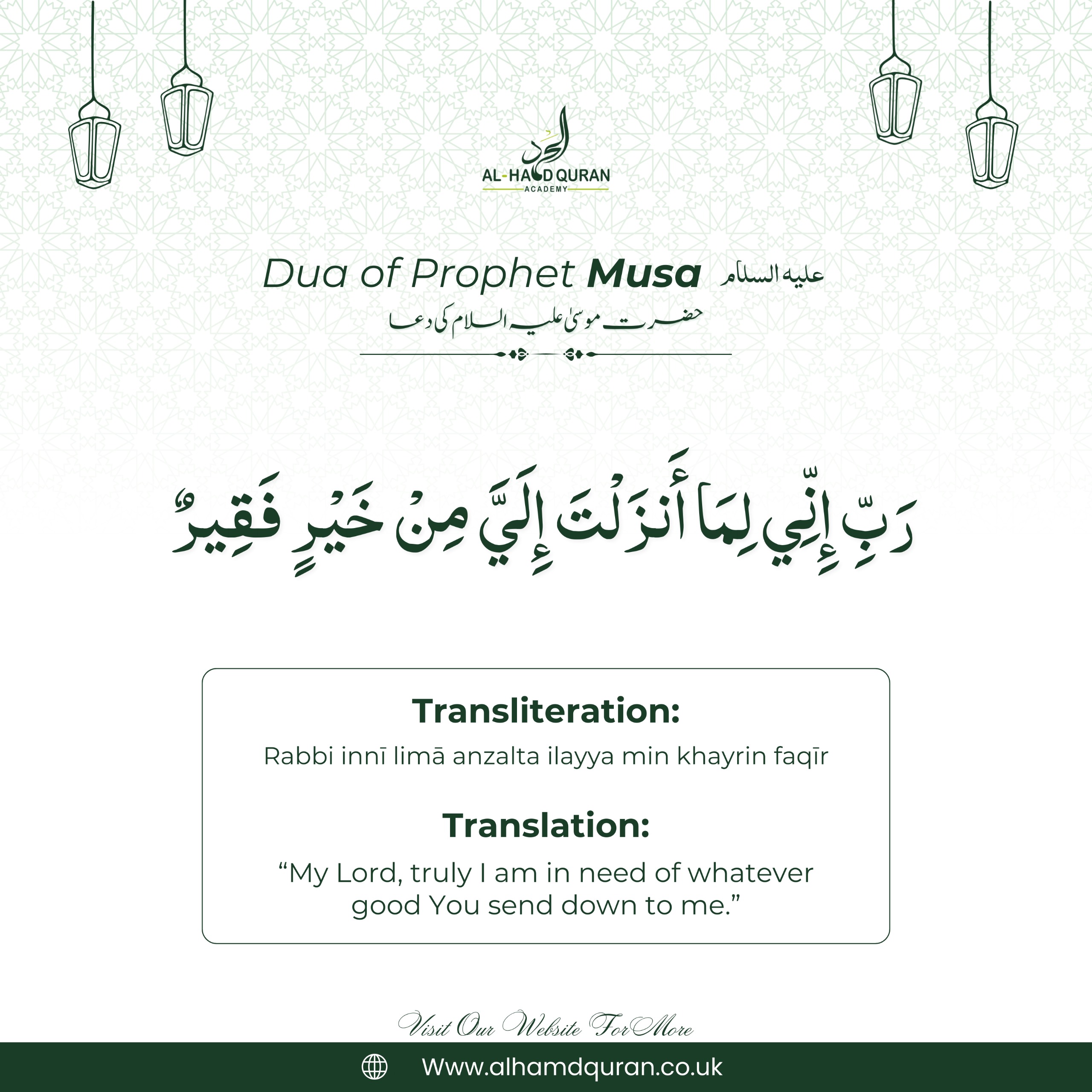The Significance of Prophet Musa's Dua
In Islamic tradition, the dua of Prophet Musa (AS) stands as a timeless example of complete reliance on Allah during times of need. This profound supplication, uttered when Musa (AS) was at his most vulnerable, teaches Muslims the essence of tawakkul (trust in Allah) and humility before the Creator.
This dua serves as a spiritual anchor for believers facing challenges, reminding us that true provision comes only from Allah. By understanding and implementing this supplication in our lives, we align ourselves with the prophetic tradition of turning to Allah in all circumstances.
The Sacred Dua
Here is the complete dua as recited by Prophet Musa (AS), preserved in the Holy Quran:
This powerful supplication encapsulates the essence of dependence on Allah while acknowledging that all goodness originates from Him alone.
Historical Context of the Dua
This dua was recited by Prophet Musa (AS) during one of the most challenging periods of his life, as narrated in Surah Al-Qasas (28:24):
Flight from Egypt
After accidentally causing the death of an Egyptian, Musa (AS) fled from Pharaoh's wrath, traveling for eight days until he reached Midian.
Arrival at the Well
Exhausted and hungry, Musa (AS) arrived at a well where shepherds were watering their flocks. He noticed two women waiting with their sheep.
An Act of Kindness
Despite his fatigue, Musa (AS) helped the women water their flock. This act of chivalry demonstrated his noble character even in hardship.
The Moment of Supplication
After helping the women, Musa (AS) sat in the shade and made this heartfelt dua to Allah, expressing his utter need for divine provision.
Divine Response
Allah immediately answered his dua. One of the women returned to invite him to meet her father, who would eventually offer Musa (AS) shelter, employment, and marriage to his daughter.
Spiritual Benefits of Reciting This Dua
Regular recitation of this dua brings numerous spiritual benefits to believers:
Strengthens Tawakkul
Reinforces complete trust in Allah's provision and timing
Cultivates Humility
Reminds us of our inherent need for Allah's blessings
Attracts Divine Provision
Opens doors to unexpected blessings and sustenance
Increases Gratitude
Develops appreciation for Allah's countless blessings
When to Recite This Dua
This powerful supplication can be recited in various life situations:
Financial Hardship
When facing economic challenges or uncertainty
Career Transitions
When starting a new job or business venture
Times of Uncertainty
When feeling lost or in need of divine guidance
Daily Spiritual Practice
To cultivate constant awareness of dependence on Allah
Frequently Asked Questions
The dua is: "Rabbi innī limā anzalta ilayya min khayrin faqīr" which translates to "My Lord, truly I am in need of whatever good You send down to me."
This dua is found in Surah Al-Qasas (28:24) when Prophet Musa (AS) arrived in Midian after fleeing Egypt.
Benefits include strengthening tawakkul (trust in Allah), cultivating humility, attracting divine provision, increasing gratitude, and developing patience during difficult times.
You can recite it when facing financial difficulties, starting new endeavors, during times of uncertainty, when feeling ungrateful, and when seeking Allah's guidance.
There's no specific limit - you can recite it as often as you feel the need. Many Muslims incorporate it into their daily dua routine, especially after prayers.
Yes, this dua specifically acknowledges our need for Allah's provision. While it doesn't guarantee immediate wealth, it aligns our hearts with trust in Allah's timing and wisdom in providing for us.
Implementing the Dua in Daily Life
To fully benefit from this powerful supplication, consider these practices:
• Begin each day by reciting this dua with reflection and presence of heart
• Teach the dua to your children, explaining its profound meaning and context
• Create visual reminders in your home or workspace with the Arabic text and translation
• Pair the recitation with charitable giving, following the example of Prophet Musa's kindness
• Maintain a dua journal to record instances where Allah answers your supplications
By making this dua a living practice rather than just words, we embody the essence of Prophet Musa's complete reliance on Allah and open ourselves to divine blessings in unexpected ways.




